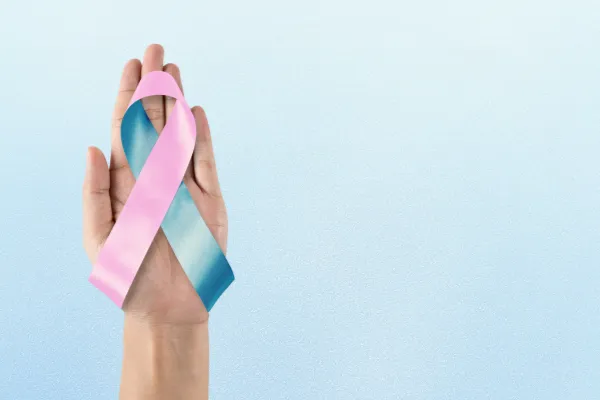Topics
What is a concussion?
A concussion is a form of mild traumatic brain injury resulting from a blow, jolt, or impact to the head or body that temporarily disrupts normal brain function leading to various symptoms, including confusion, memory problems, dizziness, headache, and nausea.
While most concussions are not life-threatening, they require immediate attention and rest to allow the brain to recover.
What are the causes?
Primary causes of concussions include:
- Direct blow to the head (head trauma): This can occur in sports, falls, car accidents, or physical altercations.
- Sudden acceleration or deceleration: Whiplash injuries, often seen in car accidents, can cause the brain to move rapidly back and forth inside the skull, leading to bruising, damage to brain cells, and disruption of normal brain function.
- Falls: Falling and hitting the head is a common cause, especially in children and the elderly.
- Sports injuries: Contact sports like football, hockey, soccer, and rugby have higher risks of concussions due to collisions and falls.
- Blasts or explosions: In military settings, exposure to blast waves can cause concussions, even without a direct blow to the head.
How long does a concussion last?
The duration of a concussion varies for each individual and the severity of the injury. Most concussions resolve within few weeks, but some may persist for months, leading to post-concussion syndrome.
Proper rest and medical guidance are crucial for recovery, and returning to normal activities or sports too soon can prolong symptoms or lead to further complications.
Prolonged or repeated concussions can have long-term consequences, making it crucial to manage and prevent them, especially in sports and activities where head injuries are common.
Medical evaluation is essential to ensure a safe recovery.
What are the symptoms of concussion?
Concussion symptoms can vary widely and may not always appear immediately after the injury:
- Headache
- Dizziness
- Nausea/vomiting
- Confusion
- Difficulty maintaining balance
- Memory problems
- Sensitivity to light and noise
- Changes in mood or behaviour
Concussion symptoms in children
Concussion symptoms in children can be similar to those in adults, but younger children may have difficulty communicating their symptoms.
Also read: How to prevent and treat sports injuries in children?
How is a concussion diagnosed?
A concussion is diagnosed through a medical evaluation that considers a person’s reported symptoms, physical examination and imaging tests such as CT scans or MRIs to rule out serious brain injury such as bleeding or skull fractures.
How is it treated?
- Rest: Avoid activities that could exacerbate symptoms such as sports or mentally demanding tasks to allow the brain to heal.
- Medication: Painkillers can help to ease headaches and discomfort. Avoid blood-thinning medications like aspirin to reduce the risk of bleeding.
- Cognitive and physical therapy: To address lingering issues like memory problems or balance difficulties.
- Counselling or psychological support: To help with emotional and psychological recovery.
What are the potential complications due to concussion?
Concussions typically heal on their own, but the timeframe can vary. Most resolve within few weeks, while some may persist for months, leading to post-concussion syndrome if not properly managed.
Post-concussion syndrome is characterised by persistent headaches, cognitive difficulties, and mood changes. In some cases, it can cause depression, anxiety and other psychological symptoms. Prompt medical attention and support are essential in managing these issues.
Second-impact syndrome, a rare but severe condition, occurs when a second concussion happens before the first has healed, leading to severe brain swelling.
How to prevent a concussion?
Preventing concussions involves a combination of strategies aimed at reducing the risk of head injuries in various settings.
Protective gear and safety measures in sports
- Wear helmets that fit properly and meet safety standards for activities such as biking, skiing, snowboarding, skateboarding, and contact sports like football and hockey.
- In some sports, wearing a mouthguard can help protect against head injuries by cushioning blows to the head.
- Follow and enforce rules designed to minimise the risk of head injuries, e.g., proper tackling techniques in football, avoiding head contact in soccer, and adhering to no-checking rules in youth hockey.
- Education about the risks of concussions, symptoms to watch for, and the importance of reporting injuries should be enforced for coaches, athletes, and parents.
- Teach and practice proper techniques in sports to avoid head impacts, e.g., learning how to fall safely in gymnastics or martial arts.
Home safety
- Make home environments safer by using safety gates for young children, securing rugs to prevent slipping, and installing handrails on staircases.
- Ensure playgrounds have soft surfaces like mulch or sand and play equipment is well-maintained.
- Secure staircases and dangerous areas with safety gates to prevent children from accessing potentially hazardous spaces.
- Apply corner guards on sharp edges of furniture to reduce the risk of head injuries during accidental collisions.
- Secure heavy furniture to the wall to prevent tipping and potential head injuries from falling objects.
Vehicle safety
- Always wear seat belts while driving or riding in a car.
- Use age- and size-appropriate child safety seats and booster seats.
- Never drive under the influence of alcohol or drugs and avoid distracted driving.
- It is unsafe to drive with a concussion. The altered mental state and impaired coordination can lead to accidents. Wait until a healthcare professional examines you and allows you to drive.
Workplace safety
- Wear appropriate protective gear in occupations that have a risk of head injury, e.g., construction or mining.
- Ensure proper training on safety protocols and the use of equipment.
Elderly care
- Fall-proofing homes for older adults by removing tripping hazards, using non-slip mats in the bathroom, and installing grab bars in showers and near toilets.
- Encourage regular vision and hearing check-ups to reduce the risk of falls.
Make an appointment at Pantai Hospitals
Concussions are serious. If you or someone exhibits warning signs such as persistent vomiting, loss of consciousness, seizures, severe headache, slurred speech, or unequal pupil size, immediate medical attention is necessary.
Get in touch with us to book an appointment today for a consultation, or visit our Neurology Department at your nearest Pantai Hospital.
Pantai Hospitals have been accredited by the Malaysian Society for Quality in Health (MSQH) for its commitment to patient safety and service quality.













